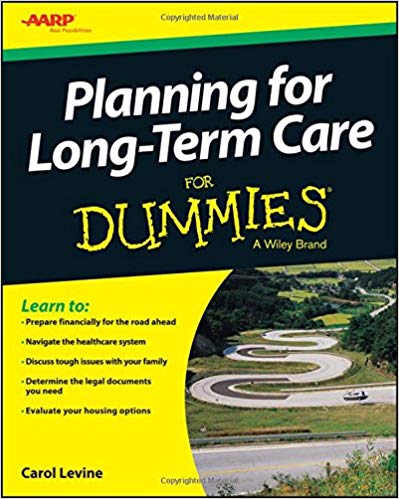Your ‘Guaranteed’ Long-Term Care Premium … Isn’t
By • September 24, 2018 One Comment 1119

If you’re the proud — or panicked — owner of a long-term care health insurance policy, I’ll bet you 10 to 1 you heard the phrase “lock in the rates” from the agent who sold you your policy. Thousands of people were told to purchase LTC policies sooner rather than later, before the premiums became prohibitively expensive.
It makes sense: “Better get in now, before all those aging baby boomers start making claims and LTC insurance becomes impossible to afford!” The only problem is that LTC insurance is a lot like health insurance — the premiums can increase at any time, by any amount. And buried deep within the fine print of your policy was a disclaimer that probably read something like, “Your rates are subject to future increases.” Nothing was ever guaranteed.
How we got here
Premiums have increased because insurers misjudged the duration and cost of claims. In 1980, LTC expenditures in the U.S. were $30 billion, but by 2015 that figure had skyrocketed to $225 billion. In some cases, premiums have increased as much as 130 percent.
Most people purchase LTC policies from a place of love for themselves and/or for their loved ones. No one wants to think that their care will suffer or that they’ll become a burden to family just because the funds in their retirement accounts run out. End-of-life care is estimated to cost $217,820 for a patient’s final five years without dementia; with dementia, that price jumps to $341,651.
So what’s to be done about my increasing rates?
While some “rate stability legislation” has been introduced to prevent premium hikes, this is only good news for people 20 years from now. For folks needing care today, I recommend old-fashioned participating “whole life” insurance policies with a chronic illness rider to solve the majority of long-term care protection problems. With these policies, if you need to move into a nursing home, you can spend your death benefit completely tax-free for your care. Or, if you shuffle off earlier than expected, your heirs will receive the benefit upon your death.
There’s also what’s called “hybrid life and LTC”: policies that are sold as a single premium, which can work for someone who wants something that’s one-and-done. Another option is to invest money — say, $100,0000 — in a safe layered bond portfolio with a 3-percent return and, from age 65 to age 75, pay it into a traditional participating mutual insurance contract. At age 80, this would produce a $258,000 guaranteed cash value.
Always read the fine print
No matter what you’re buying, always ask about the possibility of rate increases. And if you have an LTC policy, make sure you fully read and understand the terms of your contract. In some cases, you can inadvertently negate your contract completely by violating its terms — and you won’t get back a dime of what you put in. One example: checking out of the hospital against doctor’s orders. LTC companies can read this as your disobeying medical advice and becoming a greater liability than you already were.
Author of “Take Back Your Money” and “The Ten Truths of Wealth Creation,” John E. Girouard is a registered principal of Cambridge Investment Research and an investment advisor representative of Capital Investment Advisors in Georgetown.


If you don’t plan your retirement and aging needs who will?
The Federal Deficit Reduction Act provided for every state to have a Partnership program to provide asset protection for those who buy qualified long term care insurance policies. https://www.partnershipforlongtermcare.com
An alternative are linked products, Life Insurance or Annuities with long term care riders. In most states you can also use your qualified money (IRA/401k) to fund your plan. https://www.lifeinsuranceltc.com
Jonathan Pond, Financial Planner, says that 90% of estates are spent this way: 1) nursing home 2) IRS 3) children 4) grandchildren 5) charity